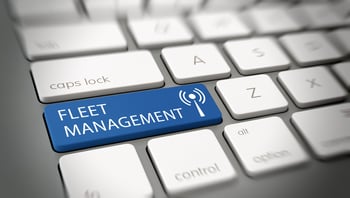Whether you run a trucking, plumbing, or oil and gas company, you have probably had your fair share of challenges with fleet management. However, technology has revolutionized how businesses manage their fleets.
Investing in the right technology can cut down your vehicle operating costs, minimize your administrative task, and safeguard your assets.
This article explores GPS vehicle tracker technology and how you can leverage it to grow your business.
1. Minimizes a Companies Administrative Burden
When managing a significant fleet, doing the paperwork manually can take a toll on you and your team. For example, your office employees have to count all the company vehicles every day and prepare a report.
Such reports could include the whereabouts of your vehicles and their condition. While it is possible to do so, doing it manually is burdensome. Also, there are chances of human error.
A fleet tracking system can minimize your company's administrative burden. It will allow you and your team to count vehicles from your computers. If anyone needs a report on the same, they can print with just a few clicks of the mouse.
Phone calls also increase your administrative duties. Moreover, it can be quite expensive to call your drivers for updates every other hour. With a tracking system, you only need to log into your fleet management dashboard and check if your workers are on site.
2. Billing and Invoicing
Companies that bill by the hour sometimes have to rely on their workers to record the time while on site. Unfortunately, this could be misleading at times. As a result, you could be losing money that you have already worked for.
A GPS will come in handy on matters of billing. For example, if you run a plumbing service, and you charge on an hourly basis, you have to keep tabs on time spent at the site. Monitoring the time manually could be hectic.
A GPS tracking platform will help you monitor the time your workers spend at a client's premises with the utmost ease. With the help of this system, you can automate your billing and invoicing system. This will allow you to run some aspects of your company effectively.
The best part is that you will no longer have to count on your employees to note the time and log the hours. More so, you will free them to focus on their core expertise while your systems take care of the rest.
What's more, is that you can provide the billing information to your customers. Most importantly, you can validate the work you have done for the client if the need arises.
3. Driver Monitoring and Scoring
In fleet management, you may need to monitor and score your drivers with the intent of reducing liability. A GPS tracker with a dash camera allows you to integrate your operations with other technologies. These are the likes of accelerometers.
When you integrate accelerometers with your GPS, you can check if your drivers are braking harshly or accelerating rapidly in dangerous areas.
Collecting this data allows you to evaluate the performance of your drivers.
Also, the information enables you to develop driver profiles to help you score them as per their driving habits. After establishing the scores, you can easily tell who is likely to get into an accident and mitigate the risks through training.
A single accident may cost your company nearly half a million dollars. If you can correct a driver's behavior before it gets out of hand, you will minimize your liability.
4. Helps you to Improve Customer Satisfaction
When you install a GPS tracker on your work trucks, your business operations become data-driven. For instance, your customers may need reliable updates on the whereabouts of their parcels and supplies. Maybe their clients are waiting for the products in question.
Without a GPS tracker, you will have to keep calling your drivers and asking about their whereabouts. Some of them will not be forthcoming. They will give inaccurate feedback.
For these reasons, you cannot provide reliable real-time updates to your clients. Eventually, this takes a toll on your business relationships. It makes you look unprofessional and in the long run, you may lose some of your clients.
With a GPS tracker, you can provide accurate updates to all your clientele at all times. For instance, you can send them a notification when their parcels arrive. This makes your operations incredibly smooth and helps you build rapport with your clients.
Installing a GPS tracker on your fleet undoubtedly enables you to increase customers' satisfaction.
5. GPS Data Helps to Understand Your Business
If you are in the oil and gas transport industry, you need to keep your trucks running. Most importantly, you have to know which ones are productive and which ones are not at all times.
The data that you collect through your GPS will help you understand your business better.
For example, if you only have two trucks, you can count on the data your GPS tracking generates. If you have one truck that is not producing, it means that 50% of your workforce is not productive.
On the other hand, if you have 100 trucks and one is not producing, it can be difficult to figure that out without proper systems in place. This is what GPS tracking brings to the table. It helps you to identify weaknesses in your fleet and eliminate them.
6. Processing Payments for Your Technicians
Billing is sometimes a challenge for a company that provides essential services around the clock. For instance, you may be running an elevator repair service. Some of your technicians will work in remote locations and barely come to the office.
The problem arises when you receive a call about a faulty elevator at 1:00 am. You dispatch a technician immediately. Instead, they take an entire hour getting ready and spend another hour driving to the site. They then bill on the double, about $35 an hour.
The technician in question might claim that they worked from 1:00 am to 5:00 am. With a GPS tracker, you can easily check when they left the house, and when they got to the site. Additionally, you will see how many hours they spent at the client's premises.
Such information is invaluable, and it allows you to process workers' payments accurately. It ensures that you are not making costly overpayments.
7. Helps to Lower the Risk of Asset Theft
In 2021, auto theft in the US skyrocketed by a staggering 9%. Stealing a car is no longer as difficult as it was decades ago. Fortunately, an asset tracking system may provide the protection you need.
Thieves target every asset that has a value. Your van or truck is no exception.
It may even get worse if you use this vehicle to carry your sophisticated tools and equipment. If you lose it, you lose a bunch of valuable assets.
Whether you own your work trucks or you have leased them, you want to protect them by all means. Otherwise, a lost vehicle will dent your business financially in a significant way.
Most people who steal vehicles try to get them out of state as soon as possible. It is vital to stop them before they get away.
A trailer tracking device serves as an asset protection system. For example, if your vehicles operate within certain parameters, you can receive a notification if someone drives out of the designated zone. What's more interesting, is that you can even switch the vehicle off to stop them.
GPS provides real-time tracking of your vehicles. In case someone takes off with your car, you have a high chance to recover it. Moreover, you can always forward this information to law enforcement so that they can intervene.
When thieves realize that your vehicles have GPS trackers, they will not attempt to steal them. Hence, you can go about your business without worrying that someone might steal your mobile assets.
8. Minimizing Fuel Costs
If you depend on a mobile workforce to run your enterprise, fuel is one of the expenses that dents your company’s coffers. Vehicle tracking can help you keep your fuel costs in check.
Several things will increase your fleet’s fuel costs. The first one is idling. Research shows that idling costs car owners a whopping $6 billion every year. If your company’s vehicle idles for at least one hour every day, you will waste about 1/5 gallon of fuel.
Although it may not seem like a lot of fuel is going to waste, if you have a large fleet, the resulting loss could be significant.
Aggressive driving is another habit that leads to the wastage of fuel. Besides that, wasting fuel at the pump tops the list.
Your drivers may opt for expensive types of gasoline whenever they refuel. This will lead to the company shouldering unnecessary and avoidable expenses.
GPS tracking can help you minimize these costs in several ways. For example, the system can send a notification to let the driver know they are idling. The driver will then have to move on or shut the engine.
Besides that, GPS car trackers can notify your drivers whenever they are driving aggressively. The goal is to train them to use driving techniques that use less fuel.
GPS tracking systems may also capture the fuel consumption patterns of vehicles. The platform will relay this information in the form of a report. Integrating this with the fuel cards and putting reasonable fueling limits can keep your fuel costs in check.
9. Reduces Vehicle Breakdowns
When you rent a vehicle, you probably don’t drive it with the same caution that you exercise on your own. While your drivers may work well, they may not worry much about the potential wear and tear of the vehicle.
What's more, is that you may not have the time to evaluate the condition of all your work trucks. Unfortunately, most of your workers will not be forthcoming about your vehicle's conditions. You only notice there is an issue when one of your cars breaks down.
The good news is that it doesn’t have to play out that way. You can integrate GPS tracking systems with other technologically advanced devices to evaluate your car’s health in real-time. And, you will receive notifications whenever your vehicle has a problem that requires urgent attention.
With this kind of GPS tracking coordinated technology, you can minimize your fleet's rate of breakdown and your overall costs of repair.
10. Reduces Operational Costs
A GPS can reduce your business operating costs in several ways. First off, with GPS tracking in place, you no longer have to call drivers for updates. Hence, you don’t have to incur phone call costs.
In addition to that, you don’t have to interrupt your driver with calls. You will save their time as well as yours.
Saving money on vehicle maintenance is also a possibility. When you receive an alert that a particular vehicle needs a crankshaft sensor through your GPS dashboard, you already know the problem. As a result, you don’t have to pay the repair shop for diagnostics.
Insurance providers usually go the extra mile to offer a discount on policies if your vehicles have a tracker. It may not make much financial sense if you have one car, but the cumulative discounts on a fleet will undoubtedly make a difference.
Invest in the Best GPS Tracker for Car Technology
The benefits of investing in GPS tracker for car technology surpasses its cost. These fleet management systems go a long way in ensuring that your business operations run smoothly.
If you currently do not have a fleet management system in place, it is time to invest in the best car tracking solutions. We are a company that offers a wide array of high-quality GPS car trackers. Our team has extensive experience in helping fleet owners or managers choose the right solutions.
Contact us today for the most befitting GPS tracking systems for your fleet.


